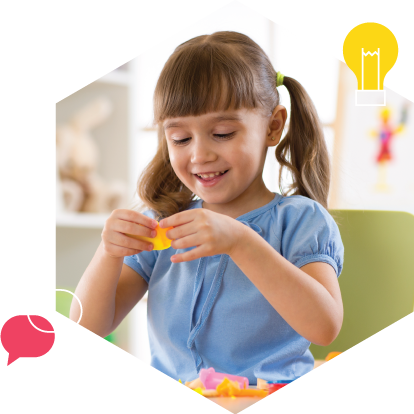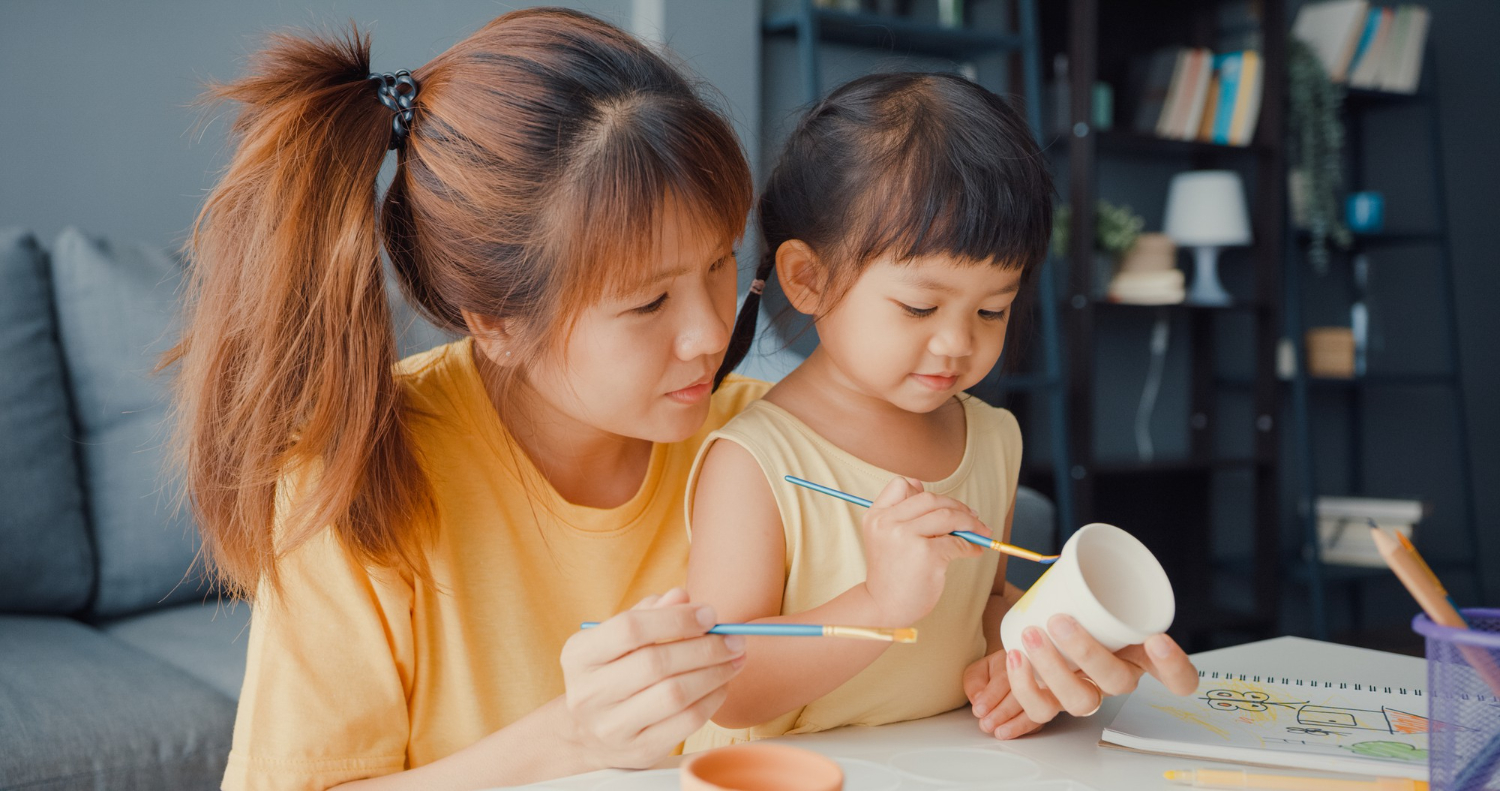
Parent-Child Bonding Through Play: Why It Matters & How to Nurture It
| Aspect | Summary |
|---|---|
| Why This Topic Matters | Strong bonds in early childhood lay the foundation for lifelong emotional wellbeing. |
| Cognitive Benefits | Play-based bonding builds focus, language development, and executive function. |
| Problem-Solving Benefits | Collaborative play nurtures critical thinking and adaptive learning. |
| Emotional Development | Regular shared play strengthens empathy, resilience, and trust. |
| Practical Applications | Family rituals and creative projects provide daily bonding opportunities. |
Creative Play as the Heart of Parent-Child Connection
Picture this: It’s Saturday morning, and instead of watching cartoons, your child is elbow-deep in glue and construction paper, next to you. You’re laughing, working together, inventing your own little world. These moments are cute, but also they’re core to parent-child bonding through play.
In the early years, play isn’t just how children learn, it’s also how they connect emotionally, develop trust, and form secure attachments. Research shows that shared activities build the emotional scaffolding children need to thrive long-term. That’s why prioritizing creative play in your family routine is more than just fun, it’s fundamental.
Let’s explore why bonding through hands-on activities matters and how it can fit into your everyday family rhythm.
Why Parent-Child Bonding Is Critical in Early Childhood
Every child needs love, safety, and consistency – but how we show up matters. During early development, bonding experiences shape a child’s emotional regulation, self-esteem, and even future relationships.
According to the Center on the Developing Child at Harvard, responsive, nurturing relationships are the most powerful builders of brain architecture in young children. Serve-and-return interactions are one of the most effective ways to do this through play.
When bonding happens through creative family time, it adds a dynamic layer: discovery, fun, and partnership. A shared activity like painting, storytelling, or building something together becomes more than just a task – it’s a moment of eye contact, shared laughter, and gentle guidance.
Parents of young children, especially those aged 3–6, often struggle to balance screens, structured activities, and real connection. The good news? You don’t need hours. Just 15–30 minutes of focused, playful interaction each day can create meaningful emotional deposits.
Try this: Pick one recurring “ritual” that becomes your family’s thing. It could be Saturday sketch sessions or weekday wind-down storytelling. Rituals = bonding glue.
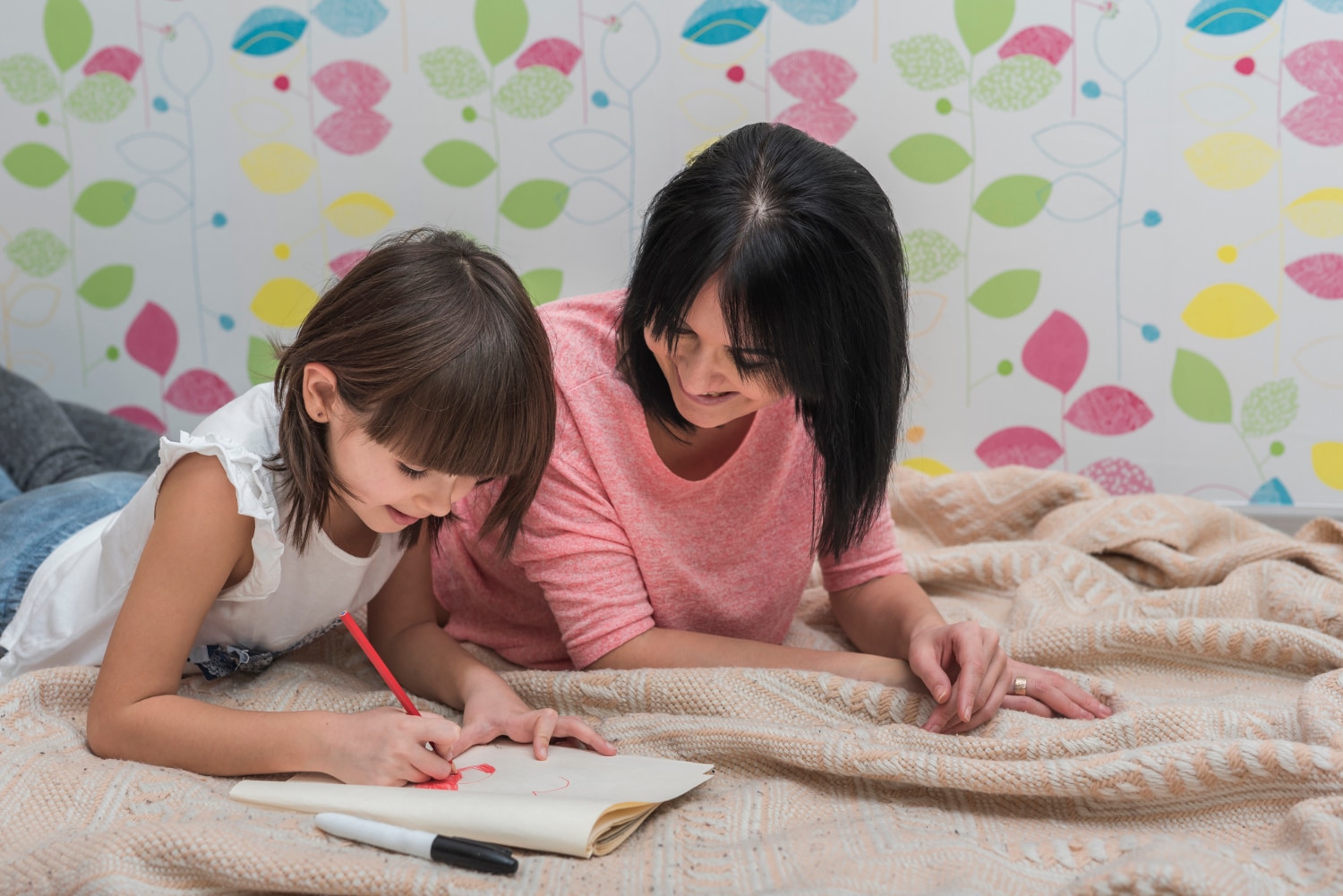
By incorporating simple, open-ended projects, families can foster developmentally rich experiences. That’s exactly what the Creative Thinking Program is designed to support, making creativity easy, structured, and rewarding.
How Creative Play Builds Stronger Family Connections
What makes parent-child connection activities truly powerful is how they engage both sides of the brain – logic and emotion – while deepening the relationship. Hands-on play prompts collaboration, imagination, and problem-solving in real time.
Children learn by doing. But they remember by feeling. According to the CDC, engaging in child-led special playtime activities helps nurture emotional closeness, trust, and confidence in young children.
Real-life example: Five-year-old Talia and her dad spent each Sunday designing new animals out of craft scraps. Talia called them “scrappy pets.” Weeks later, when asked what she loves about Sundays, she simply said, “Because we make pets.”
Creative projects also offer built-in roles for collaboration:
You’re the co-builder, not the boss.
Mistakes become moments of shared learning.
Completion becomes celebration, not perfection.
The goal? Less pressure, more presence.
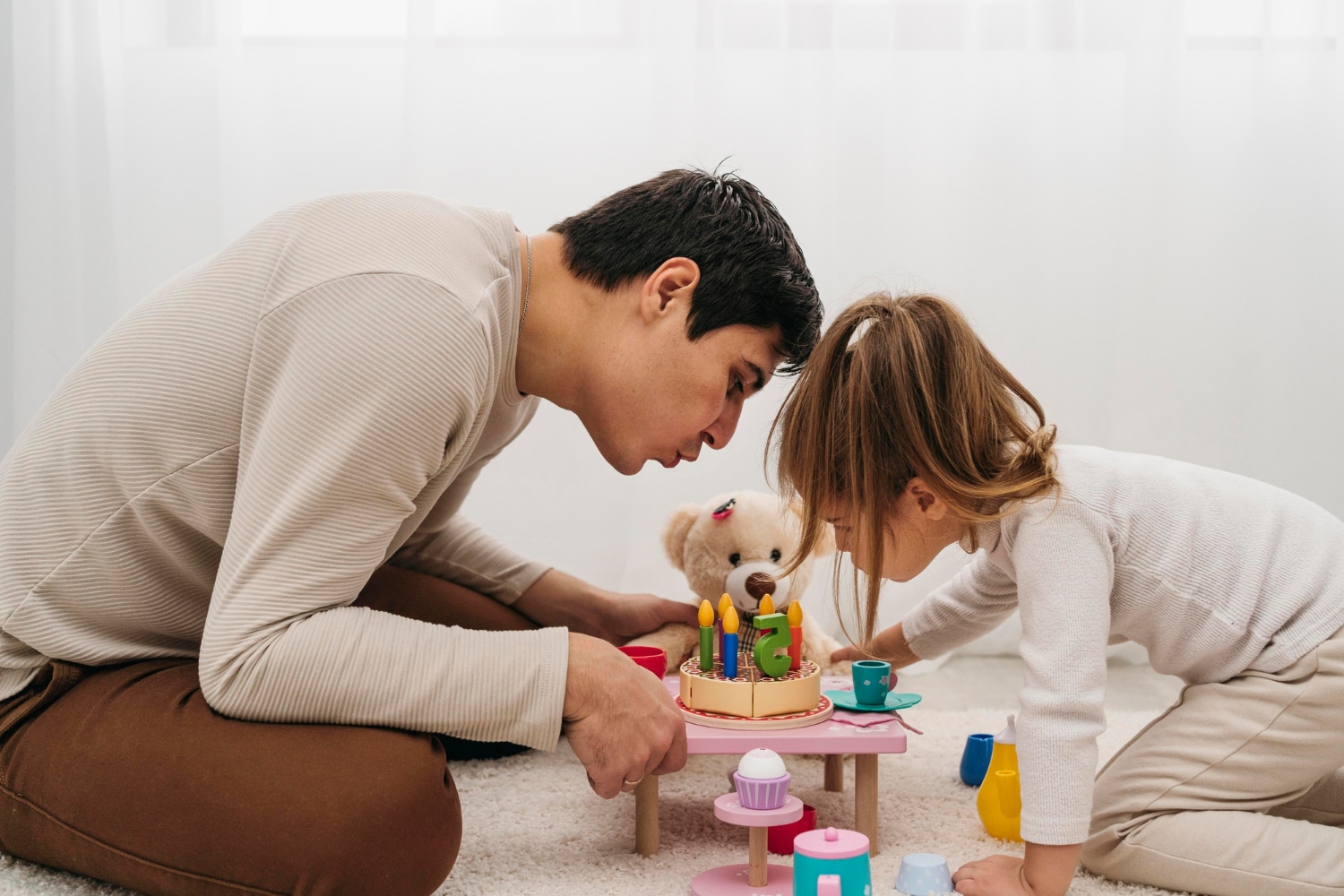
To make playtime more intentional, many families are turning to curated resources like the monthly ActivityBox kits, which deliver hands-on activities designed to encourage creativity and bonding without the prep.
Weekend Projects That Strengthen Family Bonds
Not every family can commit to elaborate projects – and that’s okay. The beauty of family play rituals lies in consistency, not complexity.
Here are a few weekend-ready ideas that build parent-child bonding through play without needing to overplan:
| Project Idea | Bonding Benefit | Time Needed |
|---|---|---|
| DIY Puppet Theater | Encourages storytelling & empathy | 45 min |
| Family Obstacle Course | Builds teamwork, trust, and laughter | 30 min |
| Nature Scavenger Hunt | Fosters curiosity & shared discovery | 1 hour |
| “Invent a Game” Challenge | Sparks collaboration & problem-solving | 20 min |
Each of these activities invites shared projects, decision-making, and celebration – ingredients that reinforce connection.
A Hong Kong-based study of the PLAYBAG co-creation play model found that shared free play environments significantly enhanced emotional regulation and bonding between children and caregivers.
For families looking to make playtime more accessible, especially across households, gifting a custom ActivityBox subscription is a fun way to encourage meaningful connection between children and grandparents, co-parents, or caregivers.
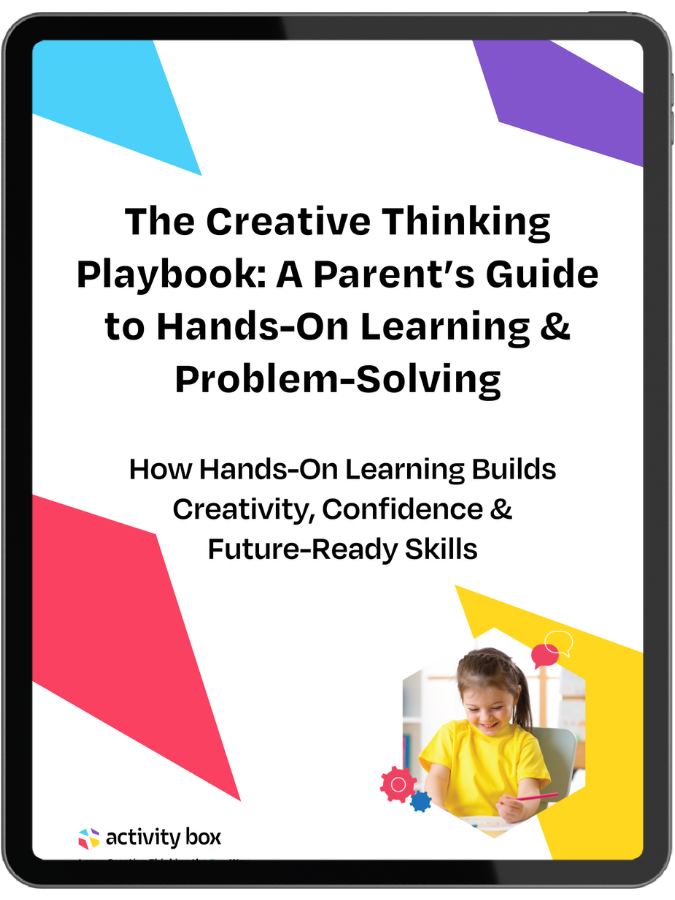
Get the Free Playbook for Easy Fine Motor Activities
Learn how hands-on play helps your child develop problem-solving, creativity, and confidence, without screen time or prep.
Hands-on, screen-free activities
Printable planner included
Stress-free and fun for parents
Expert-designed, child-approved
Turning Everyday Moments into Meaningful Connections
When families prioritize parent-child bonding through play, the results ripple far beyond the craft table or scavenger hunt trail.
Here’s how you can help:
Emotional development improves through safe, nurturing interaction
Shared rituals foster confidence, empathy, and resilience
Creative play becomes a trusted language of connection
Daily life transforms into a meaningful memory bank
Next time you have a free half-hour, skip the screens. Pick up scissors, crayons, and curiosity instead. You might be surprised how much connection you can create in a single afternoon.
👉 Join the Creative Thinking Program and nurture deeper family bonds through guided play projects every month.
FAQs About Parent-Child Bonding Through Play
What are the best activities to strengthen parent-child bonds?
Activities that involve collaboration, imagination, and shared success – like building crafts, storytelling, cooking together, or scavenger hunts – are ideal. The key is presence over perfection.
Why is play so important for family relationships?
Play lowers stress, creates positive shared experiences, and helps children feel seen, safe, and supported. It’s a natural way to build attachment and trust.
What does the research say about bonding through play?
According to Harvard’s Center on the Developing Child, serve-and-return interactions are crucial to developing strong brain architecture and social-emotional skills.
How can I bond with my child if I don’t have much time?
Even short rituals like 15-minute art time or evening story swaps can build strong connections. Consistency and attention matter more than duration.
How does ActivityBox support bonding through play?
Every box includes tools and guided activities that encourage cutting, shaping, building, and more all designed by educators to develop small muscle control naturally.
How do I join?
Have more questions?
We’re here to help! Contact us .
